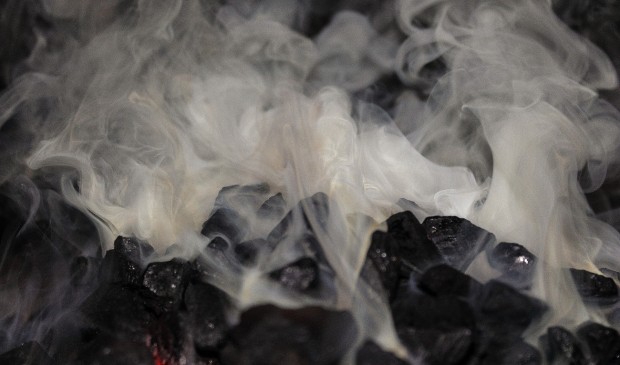Newsletter Signup
The Austin Monitor thanks its sponsors. Become one.
Most Popular Stories
- Lost Creek neighborhood sues city over tax efforts
- Density proponents encouraged by HOME six-month progress report
- Most Austin-area drivers will still need a vehicle inspection. Here’s where the rules have changed.
- City and county to invest in historically underserved Northeast Austin area
- At citizens’ request, City Council reannexes land
-
Discover News By District

Barbecue smoke ordinance continues to sizzle
Tuesday, May 5, 2015 by Tyler Whitson
Though City Council turned down the heat on a controversial barbecue smoke mitigation ordinance last month, it did refer the issue to committees for vetting. The Council Health and Human Services Committee took the issue off the back burner Monday, holding a public hearing and discussing potential alternatives with city staff and restaurateurs.
The committee did not take any action on the issue. Council Member Ora Houston, who chairs the committee, said that it would take up the discussion again at its next meeting, though it would not likely hold another public hearing.
Revelations unearthed at the public hearing included the fact that the Texas Commission on Environmental Quality regulates such emissions on a statewide level, that staff research turned up no examples of city barbecue ordinances similar to the one Council previously discussed and that other municipalities use nuisance ordinances to address smoke issues in specific cases.
Council Member Pio Renteria put forth the original ordinance after receiving complaints from constituents that smoke from certain barbecue establishments was reducing their quality of life and potentially presenting health risks.
That ordinance would have amended City Code to require that barbecue establishments using wood- or charcoal-burning stoves within 100 feet of residential properties move such equipment beyond that distance or install “smoke-mitigating devices” such as smoke scrubbers.
Rather than move forward with the ordinance, Council voted 9-2 on April 2 to develop a stakeholder’s process that will involve review by the Council Health and Human Services and Economic Opportunity committees. The latter body has not yet addressed the issue.
Vince Delisi, assistant manager for the Environmental Health Services Division of the Austin/Travis County Health and Human Services Department, presented the results of a staff survey on Austin barbecue establishments and peer cities to the committee.
Delisi said that, though staff made contact with individuals representing 73 Austin barbecue establishments in late April, none of them reported using smoke scrubbers. He defined these as “air-pollution-control devices that remove harmful gases and particulates from smokestacks.”
In addition, Delisi said, none of the seven cities that staff contacted require barbecue establishments to install smoke scrubbers. Instead, he explained, they utilize nuisance ordinances “to address smoke issues at particular locations.”
According to the Municipal Research and Services Center, a nuisance is considered “an unreasonable or unlawful use of property that results in material annoyance, inconvenience, discomfort, or injury to another person or to the public.” Nuisance ordinances prohibit certain acts that fall into this category and provide avenues for addressing such issues as they arise.
Council Member Kathie Tovo seemed intrigued by the potential alternative approach.
“It seems like we have ordinances within the City of Austin that are generally categorized as nuisance ordinances. … I guess the point is that we don’t have any right now regulating smoke emissions,” Tovo said. “I would be very interested, too, in seeing what some of those nuisance ordinances are that exist in other places that regulate smoke and odor on a local level.”
Hoover Alexander, owner of Hoover’s Cooking, said that he would prefer such an approach to what he called a “one-size-fits-all ordinance” like the previous proposal.
County Line Restaurants owner and president Don “Skeeter” Miller appeared supportive of an approach that deals with smoke issues on a case-by-case basis. “Obviously, there’s a problem with the few people that we’re talking about, but I just feel like to punish all of us that have been really good stewards is not the right way to go,” he said.
Both restaurateurs stressed the financial burden that requiring smoke scrubbers could have on small businesses, asserting that the cost could put many of them out of business.
Though not all barbecue establishments have smokers, the issue applies to both brick-and-mortar restaurants and food trailers. Staff identified 86 barbecue establishments operating in the city, 54 of which have smokers. The total number of establishments includes 51 that are stationary and 35 that are mobile.
You're a community leader
And we’re honored you look to us for serious, in-depth news. You know a strong community needs local and dedicated watchdog reporting. We’re here for you and that won’t change. Now will you take the powerful next step and support our nonprofit news organization?





